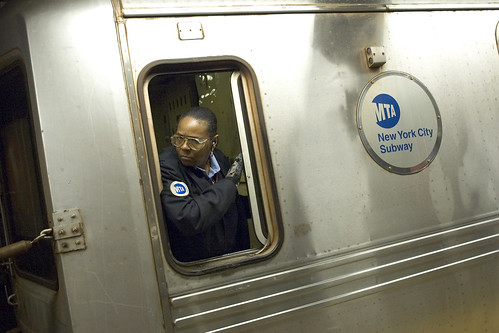New York City Averts Transit Meltdown with New Payroll Tax
(Source: The Transport Politic)
State Senate finally comes to agreement on system’s adequate funding; will vote today
The Metropolitan Transportation Authority, which has been threatening huge fare increases and drastic cuts in service, will be able to rest easy tonight, because its multi-billion-dollar budget deficit will be covered by a new, more stable source of revenue: a region-wide payroll tax. There will be no bridge tolls, but a small fare increase. Though this is no panacea, and more funding is still needed, but this is huge news for New York City and means that the city will continue to be able to offer its citizens high-quality transit at a reasonable price.
The solution — held up for weeks by the demands of a few Democrats in the Senate (no members of the GOP are willing to vote for the program) — was found by agreeing to reimburse school districts that are affected by the tax.
According to Gotham Gazette (via 2nd Ave Sagas), the plan to be voted on this afternoon will raise a total of $2.26 billion a year for the transit agency. This plan will cover the $1.8 billion MTA’s budget gap for FY 2009 and the $2 billion gap for 2010 as well as provide a small amount for capital expenditures. The New York Timesclaims that the taxes will be enough to cover the first two years of the agency’s 2010-2014 capital program. The state is likely to have to get going over the next few months to shape a funding system for necessary subway and commuter rail repairs as well as expansion needs.
Here are the basic conditions:
- 34¢/$100 payroll tax in all 12 MTA counties, with no differences between them (meaning people in Manhattan pay the same amount as people in Nassau County, even though people in the former clearly are more likely to take advantage of the transit system than those in the latter): $1.5 billion/year.
- 10% fare increase, will likely raise the cost of a single ride to $2.25 from $2 today; monthly unlimited cards will go from $81 to $89: $500 million/year.
- 50¢ surcharge on taxi rides: $85 million.
- $25 vehicle registration fee on the MTA region: $130 million.
- Increase on car rental fee: $35 million.
- Increase on driver’s license fee: $10.5 million.
The plan also foresees fare hikes of 7.5% in 2011 and 2013 to keep up with inflation.

